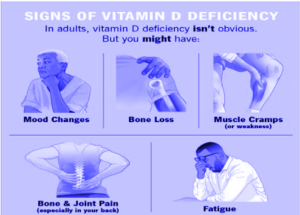Table of Contents
Your body needs 13 essential vitamins that you can obtain by eating a variety of foods. Because each of these vitamins plays a different role in the body, vitamin deficiencies can have many health effects, depending on which vitamins (or vitamins) you do not have. You can develop malnutrition due to a lack of low vitamins, and several medical conditions can lead to vitamin deficiencies. Vitamin deficiencies can be detected by blood tests. They can also be prepared orally (orally) or injectable vitamin supplements.

Introduction
Good nutrition is very important for a person’s health. Any dietary imbalance can lead to overeating or malnutrition. Lack of nutritious food can lead to malnutrition.
Let’s take a closer look at the different types of deficiency diseases and ways to prevent shortages.
List of Deficiency Diseases
| Types of Vitamins | Deficiency Diseases |
| A (Retinol) | Night blindness |
| B1 (Thiamine) | Beri-beri |
| B2 (Riboflavin) | Retarded growth, bad skin |
| B12 (Cyanocobalamin) | Anemia |
| C (Ascorbic acid) | Scurvy |
| D (Calciferol) | Rickets |
| K (Phylloquinone) | Excessive bleeding due to injury |
| Types of Minerals | Deficiency Diseases |
| Calcium | Brittle bones, excessive bleeding |
| Phosphorus | Bad teeth and bones |
| Iron | Anemia |
| Iodine | Goitre, enlarged thyroid gland |
| Copper | Low appetite, retarded growth |
Vitamin Deficiency Diseases
Vitamin is a micronutrient that is not prepared by the body in sufficient amounts. This is the reason why it is necessary to take it from external sources in order for normal body function. Inadequate vitamins cause vitamin deficiencies.
The following is a list of some of the vitamins and minerals we may lack:
- Vitamin A
It is an important micronutrient found in various food sources such as carrots, spinach, milk, egg, liver, and fish. It is required for normal vision, reproduction, growth, and a healthy human immune system.
Most children under the age of five suffer from xerophthalmia, a serious eye infection, in which the child is at risk of blindness. Vitamin A deficiency in a pregnant woman can lead to complications during pregnancy and childbirth.
- Vitamin B
Vitamin B can be of different types, such as Vitamin B1, B2, B12, etc. Deficiency diseases depend on the type of Vitamin B a person is deficient in.
Vitamin B1: Vitamin B1 deficiency causes beriberi, leading to weaker muscles and greater weight loss. Severe deficiency can lead to heart failure and heart failure.
Vitamin B6: Vitamin B6 deficiency causes degenerative diseases such as anemia and certain skin disorders such as cracks in the mouth. It can also lead to depression and neurological disorders.
Vitamin B12: Vitamin B12 deficiency causes serious anemia. Other diseases associated with B12 deficiency are musculoskeletal disorders, severe fatigue, dementia, and depression.
- Vitamin C
Vitamin C deficiency can lead to diarrhea, gum disease, skin rashes, and inflammation of the joints. It also affects the immune system and can kill even in severe cases.
- Vitamin D
Vitamin D deficiency causes rickets, which leads to bone loss, especially near the joints. It can also lead to tooth decay.
- Vitamin K
Vitamin K is essential for blood circulation. Its deficiency is common in newborns and leads to excessive bleeding due to the inability to form blood clots.
Mineral Deficiency Diseases
Minerals are inorganic elements that include trace elements such as copper, zinc, iodine, iron, and micronutrients such as calcium, potassium, magnesium, and sodium.
The following is a list of a few minerals and associated deficiency diseases:
-
Iodine
Iodine is a very important factor in the development of the developing baby’s brain. It is responsible for several other functions such as hormone production. Salt is an important source of iodine in many lands. Iodine deficiency causes goiter.
- Iron
Iron, which is in the form of hemoglobin, carries oxygen from the lungs to the various tissues. Iron deficiency causes anemia, a condition in which the blood is unable to carry the required oxygen to the tissues, leading to death. About 40-60% of newborns in developing countries suffer from iron deficiency anemia. Red meat, spinach, chicken, and other iron-rich foods.
- Prevention of Depression
- Deficiency diseases can be prevented as follows:
- Eat simple, healthy foods like nuts, soybeans, pulses, etc.
- Prolonged cooking and poorly cooked food lose your nutrition. Storing long-cut vegetables and fruits also destroys their nutrition. Avoiding this can prevent degenerative diseases.
- Fermentation and germination retain and increase the number of nutrients.
Also read: Composition Of Blood
FAQs
What are the deficiency diseases?
Deficiency diseases are diseases caused by a deficiency of any essential nutrient in the body.
How is marasmus caused?
Marasmus is caused by a lack of all the nutrients. It leads to weight loss and weight loss.
What are the benefits of Vitamin C?
Vitamin C is essential for the growth, development, and repair of tissue. It is also known as ascorbic acid. It helps in collagen formation, iron absorption, wound healing, and bone and tooth retention.
Q. Name some essential minerals in our bodies.
Ans: The essential minerals our body needs include:
- Calcium
- Magnesium
- Phosphorus
- Potassium
- Chloride
- Sodium
- Sulfur





